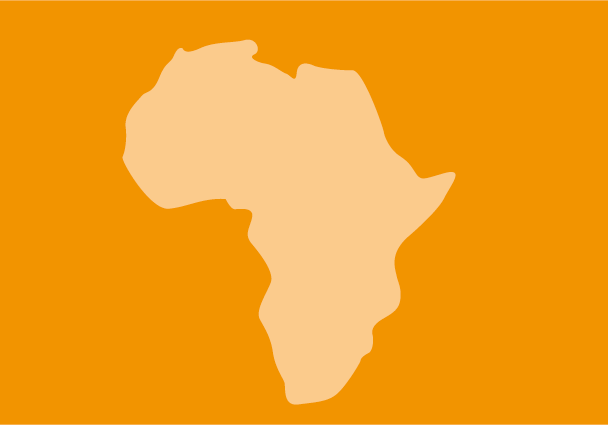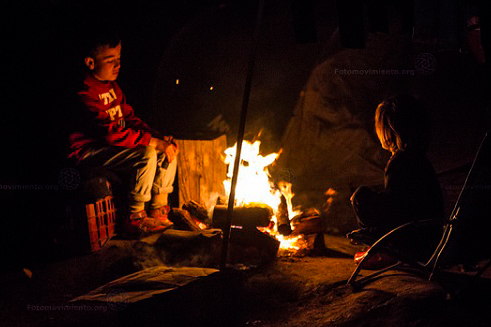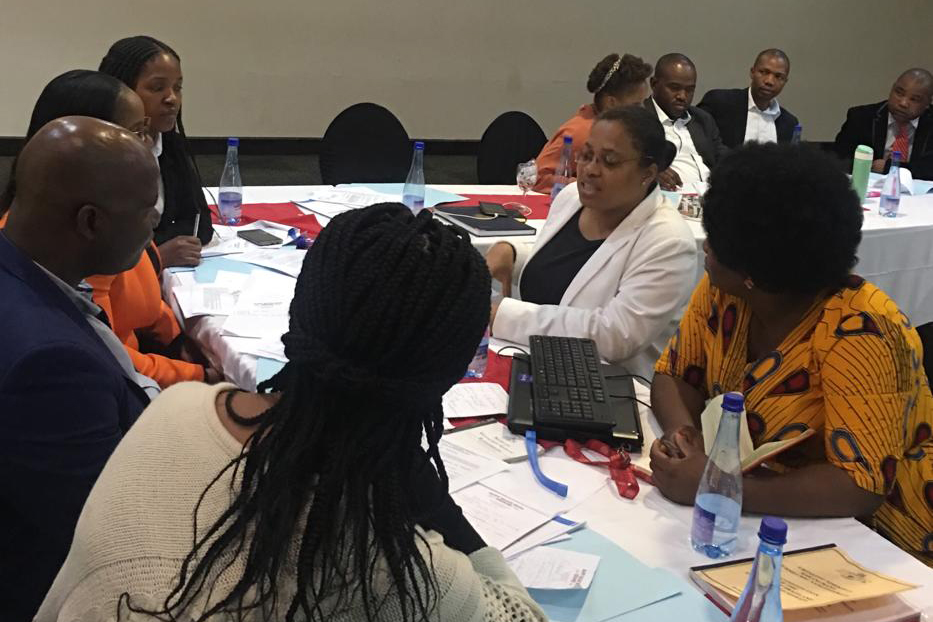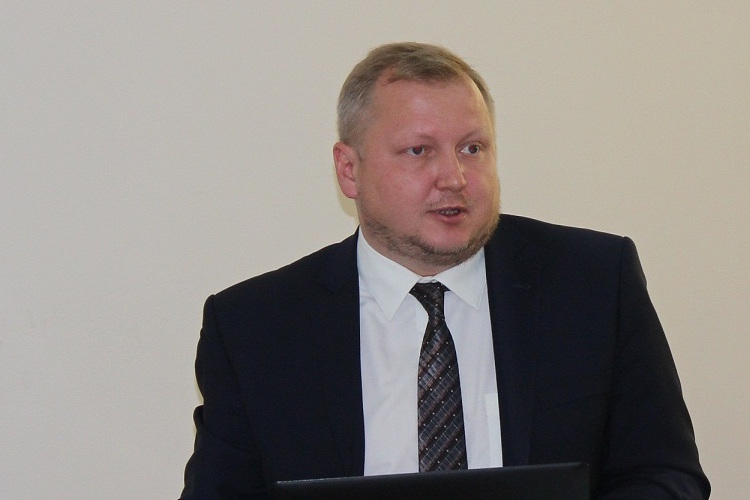
Jun 8, 2019 | Multimedia items, News, Publications, Reports, Thematic reports, Video clips
The Indian Government must give effect to recent rulings of the Supreme Court and end discrimination and other human rights violations and abuses based on real or perceived sexual orientation, gender identity and expression, the ICJ said today at the Delhi launch of its new report on the conditions of LGBTQ people in India.
The ICJ’s 152-page report Living with Dignity: Sexual Orientation and Gender Identity-Based Human Rights Violations in Housing, Work, and Public Spaces in India details human rights violations suffered by LGBTQ persons in their family homes, workplaces, and public spaces including streets, public toilets, public transport and shopping centres.
Following on the Supreme Court’s decisions in NALSA and Navtej, which strongly affirmed the human rights of LGBTQ persons, the report identifies legal and policy challenges, as well as structural barriers that prevent them from enjoying the full range of human rights.
”Despite the promise of recent jurisprudence, the Indian government has not consistently met its constitutional and international obligations to guarantee the rights of LGBTQ persons,” said Frederick Rawski, ICJ Asia Director.
“The ICJ encourages the Indian State to build on existing efforts to protect these rights to ensure full compliance with the right to live with dignity in terms of the Indian Constitution and international human rights law,” he added.
The Living with Dignity report identifies a wide range of violations and abuses of rights in the context of housing, work and public spaces.
Human rights violations associated with housing included discrimination in accessing rental accommodation, harassment and violence by landlords and by families, and arbitrary evictions.
The report sets out instances of discrimination in the workplace, at all stages of employment, and throughout the formal and informal sectors.
It also documents obstacles faced by LGBTQ persons seeking access to public spaces, including discriminatory policing, gendered toilets and transport, harassment and abuse by State officials, and discriminatory targeting through the application of public nuisance, sex work and anti-beggary laws.
The report offers a set of recommendations meant to make existing law and policy more protective of LGBTQ persons’ rights and calls for the amendment or repeal of certain existing laws.
“There is no single law or policy solution to ending long-standing and systemic discrimination. But legal and policy reforms are essential to addressing the abuses suffered by LGBTQ persons and these must include the effective, inclusive and meaningful participation of a diverse range of LGBTQ individuals and advocacy groups,” Rawski said.
The report also recommends the convening of a nationwide consultation geared towards the enactment of a comprehensive anti-discrimination law prohibiting discrimination on the grounds of sexual orientation and gender identity as is required by international human rights law.
In a preface to the report, ICJ Commissioner and former Chief Justice of the Delhi High Court, Justice Ajit Prakash Shah, indicates his hope that the report will “be used as a tool by lawyers, human rights defenders and policymakers” and “contribute to enhancing public discourse on LGBTQ rights, as well as broader issues of discrimination and the rule of law in India”.
Download
Report: Living with Dignity: Sexual Orientation and Gender Identity-Based Human Rights Violations in Housing, Work, and Public Spaces in India (English)
Executive Summary (English)
Infographics
SOGIE-based Human Rights violations in Housing
SOGIE-based Human Rights violations at Work
Barriers experiences by LGBTQ people in accessing Public Spaces
Contact
Maitreyi Gupta (Delhi), ICJ International Legal Adviser for India, e: maitreyi.gupta(a)icj.org, t: +91 7756028369
Frederick Rawski, ICJ Asia Pacific Region Director, e: frederick.rawski(a)icj.org, t: +66 644781121
Read also
Briefing Paper on Navtej Singh Johar et al. v. Union of India and Others, July 2018.
Unnatural Offences”: Obstacles to Justice in India Based on Sexual Orientation and Gender Identity, February 2017.
ICJ Briefing Paper on Implementation of NALSA Judgment, 2016.
Watch the video

Jun 7, 2019 | News
The ICJ today condemned the impending moves to subject three prominent Saudi clerics to an inevitably unfair trial on dubious charges that might result in sentences of death and arbitrary execution.
According to credible media reports citing Saudi government sources, Salman al-Odah, Ali Al-Omari and Awad al-Qarni, three prominent Saudi clerics, will almost certainly be convicted, sentenced to death and executed soon after Ramadan.
The media reports follow last April’s mass executions of 37 people, and the crucifixion of one them, following their conviction and sentencing to death for similar “terrorism” related charges.
The ICJ calls for the clerics’ release unless they can be charged with a recognizable criminal offence consistent with the rule of law, and tried before a competent, independent, and impartial court that ensures fair trial rights.
“Saudi Arabia is abusively resorting to terrorism related charges, unfair trials, and sentences of death followed by arbitrary execution to permanently silence perceived critical voices,” said Said Benarbia, the ICJ’s MENA Programme Director.
“Instead of perpetuating egregious violations of the right to life, Saudi authorities must administer justice fairly and in accordance with international law and standards,” he added.
One of the defendants, Salman al-Odah, was charged by prosecutors in September 2018 with 37 offences, including “belonging to a terrorist group: the Muslim Brotherhood,” “stirring public discord and inciting people against the ruler,” “calling for change in government,” “supporting Arab revolutions,” “possessing banned books” and “describing the Saudi government as a tyranny.”
The ICJ fears that Salman al-Odah may be subject to these charges simply for exercising his protected right to freedom of expression.
Together with the other two clerics, Salman al-Odah faces trial before the specialized criminal court, an exceptional court that fails to ensure respect of fair trial rights and that has been used to try those suspected of committing terrorism related offences, political activists, and human rights defenders.
The ICJ is concerned that since their arrest in September 2017, the clerics have allegedly been subject to incommunicado detention and prolonged solitary confinement for months. Such treatment amounts to torture or cruel, inhuman and degrading treatment, prohibited under international law.
Carrying out executions following proceedings that fail to scrupulously observe international fair trial standards always amounts to an arbitrary deprivation of life.
The ICJ opposes the use of the death penalty in all circumstances as a violation of the right to life and a form of cruel, inhuman and degrading punishment.
The ICJ underscores that the United Nations General Assembly, by an overwhelming majority, has repeated called on States that retain the death penalty to impose an immediate moratorium on executions with a view to abolition.
The ICJ calls on the Saudi authorities to immediately move toward abolishing the death penalty and impose an immediate moratorium on executions.
Background
The clerics’ detention and ongoing trial are part of a broader crackdown on activists and dissidents since September 2017, including through politicized judicial proceedings and trumped up charges under the 2014 Royal Decree.
The Decree criminalizes as terrorism offences acts that do not involve serious violence, including acts that aim to suspend the enforcement of the Constitution or some of its articles, as well as any acts that undermine the State’s prestige and standing.
Such broad definitions have effectively been used to criminalize the legitimate and peaceful exercise of human rights, including the rights to freedom of expression, association and assembly, and the right to take part in the conduct of public affairs.
The 2014 Royal Decree also allows the Minister of Interior to order the arrest of any person suspected of committing terrorism related offences, and for those arrested to remain in pre-trial detention for up to six months and to be prohibited from communicating with their family members for up to three months. Those arrested cannot be released pending trial without the authorization of the Minister of Interior or someone authorized by him.
Such conditions contravene international standards on the rights to liberty and to a fair trial.
Saudi Arabia-Death penalty-News-2019-ARA (Arabic version, in PDF)

Jun 6, 2019 | News
The ICJ today called on the Zimbabwe government to stop using the highly criticized offence of “subverting a constitutional government” to punish human rights defenders for the exercise of fundamental freedoms protected under international and Zimbabwe Law.
George Makoni, Tatenda Mombeyarara, Gamuchirai Mukura Nyasha Mpahlo, Farirai Gumbonzvanda, Rita Nyamupinga, and Stabile Dewa, referred to by the media as the “Zimbabwe 7”, have been charged under section 22 of the Criminal Law (Codification and Reform) Act [Chapter 9:23] and will face a bail hearing, due to be heard at the High Court in Harare on 6 and 7 June 2019.
“The Zimbabwean authorities need to desist from the growing practice of abusing the offence of subverting a constitutional government as an instrument to persecute human rights defenders through abuse of the legal system,” said Arnold Tsunga, ICJ’s Africa Director.
“The oppressive and retaliatory use of law by government violates the rule of law and human rights as guaranteed in the Zimbabwean Constitution as well as in regional and global human rights treaties to which Zimbabwe is a State party,” he added.
The ICJ has previously shown that the law of subversion in Zimbabwe has been used often against HRDs who peacefully exercise their fundamental freedoms, with no single conviction to date.
The law violates the African Charter on Human and Peoples Rights and the International Covenant on Civil and Political Rights (both of which Zimbabwe is a party to), including the rights of persons to freedom of opinion and expression (Article 9 African Charter on Human and People’s Rights; article 19 ICCPR), freedom of assembly (article 11 ACHPR; 21 ICCPR) article, freedom of association (article 10 ACHPR; article 22 ICCPR), and the right to political participation (article 25 ICCPR).
The UN Declaration on Human Rights defenders, adopted by the UN General Assembly, requires that States afford particular protection to human rights defenders (HRDs) who exercise these rights.
HRDs charged with this offence can face a sentence of up to 20 years in prison and have often been denied bail for some periods, in contravention of international law, which provides that charged persons should generally not be held in pre-trial detention. Such prolonged pretrial detention effectively serves as pre-trial punishment of suspects.
“Criminal law must never be used as a means to silence opposition or persecute human rights defenders, which also necessarily has a chilling on others who perform critical human rights work. It is important that the police do not arrest to investigate but they must investigate before they arrest,” said Tsunga.
Contact
Arnold Tsunga, ICJ’s Africa Director, t: +27716405926 ; e: arnold.tsunga(a)icj.org
Background
Four human rights defenders, George Makoni, Tatenda Mombeyarara, Gamuchirai Mukura and Nyasha Mpahlo were arrested on 20th May 2019 upon arrival at Robert Mugabe International Airport, Harare from the Maldives where they had attended a workshop on human rights work. Law enforcement officials alleged in the charge sheet that,” during the workshop, the four had received training on the use of small weapons, how to mobilize citizens to turn against the government and to engage in acts of civil disobedience and or resistance to law during anticipated national protests. Law enforcement agents confiscated the HRDs’ laptops and cell phones. In similar fashion, Social Justice and Girls’ Rights advocate Farirai Gumbonzvanda was arrested upon arrival at the Harare airport on 21 May. Charged with the offence of subverting constitutional government as defined in section 22(2)(a)(iii) of the Criminal Law (Codification and Reform) Act, all five persons remain in custody as their application for bail in the High Court of Zimbabwe has been postponed to 7th June 2019.
In related circumstances, Director of Female Prisoners Support Trust, Rita Nyamupinga and Stabile Dewa, Director of Women’s Academy for Leadership and Political Excellence were arrested on 28 May 2019 soon after they arrived at the Harare airport. They were taken to Harare Central Police Station without having an opportunity to consult their lawyers. Both women have also been charged with subverting constitutional government and have been remanded in custody since 29th May 2019 pending their bail hearing today.

Jun 4, 2019 | News
The ICJ, European Council on Refugees and Exiles (ECRE) and the Greek Council for Refugees (GCR) welcome the decision of the European Committee on Social Rights that Greece should take “immediate measures” to protect the rights of migrant children as required under the European Social Charter.
The Greek government should now take urgent steps to comply with the Committee’s decision, to prevent serious and irreparable injury or harm to the children concerned, including damage to their physical and mental health, and to their safety.
The Committee’s decision, issued on 23 May, requires the government to immediately provide migrant children with appropriate shelter, food, water, education and medical care; to remove unaccompanied migrant children from detention and from Reception and Identification Centers (RICs) at the borders, place them in suitable accommodation for their age and appoint effective guardians.
The Committee noted that “immediate measures” were exceptional, but found that they were necessary in this case given the government’s failure to dispel serious concerns about the gravity and urgency of the situation of migrant children in Greece.
This decision is in response to a collective complaint brought before the Committee by ICJ, ECRE and GCR, alleging systemic violations of migrant children’s rights on mainland Greece and the North Eastern Aegean islands. The complaint catalogues the numerous ways in which Greece has failed to fulfill its obligations under the European Social Charter to protect the rights migrant children, leaving them in conditions of squalor, insecurity and violence.
In addition to indicating immediate measures, the Committee found the complaint itself admissible. The complaint now awaits examination and determination on the merits by the European Committee on Social Rights.
Read the statement on the decision here in English and in Greek and full complaint here.

May 30, 2019 | News
On May 29 2019, the ICJ facilitated a workshop with a number of justice sector officials and stakeholders who are active in the implementation of the Sexual Offenses and Domestic Violence Act (SODVA).
Building on previous engagements in 2018 and 2019, the participants decided on a clear plan of action for further coordination towards the eradication of sexual and gender based violence (SGBV) in Eswatini.
Participants in the meeting included representatives from the Office of the Director of Public Prosecutions, the Office of the Deputy Prime Minister, the police, correctional services, the judiciary and the Medical and Dental Association of Eswatini.
The meeting, was opened by ICJ Commissioner and Principal Judge of the High Court of Eswatini, Justice Qinisile Mabuza.
“For too many years, the clamour for this law has been loud; now that we have it, we have to interrogate how efficiently we are using it and check for the gaps that we need to address. Its implementation is in our hands, and we cannot allow ourselves to fail those that need our protection; we cannot fall foul of failing in our duty,” said Judge Mabuza.
A draft report, commissioned by the ICJ, was presented by Nonhlanhla Dlamini, the Director of Swaziland Action Group Against Abuse (SWAGAA).
The report, provided participants with a contextual analysis of challenges faced by survivors of SGBV in accessing the justice system in Eswatini.
ICJ Legal Adviser Timothy Fish Hodgson discussed key provisions of the SODV Act and the need for their interpretation and application consistently with the Convention on the Elimination of Discrimination Against Women.
SWAGAA’s draft report revealed that despite the enactment of the SODV Act significant barriers to access to justice for survivors of SGBV remain.
These include:
- Underreporting of SGBV;
- Stereotyping and discrimination faced by survivors when reporting;
- Partial application of SODV Act due to lack of knowledge on the part of key justice sector actors;
- Under-resourcing, lack of infrastructure and services presupposed by SODV Act which prevents full implementation;
- Continued stereotype-driven assumptions made by courts despite the outlawing of such approaches in the SODV Act;
- Lack of due diligence in the collection of medical evidence;
- A perception on the part of survivors that perpetrators are better taken care of in the prosecution process than survivors; and
- A growing and inaccurate perception of the SODV Act and its purposes, which has been facilitated by misleading media reports.
Participants made practical recommendations of how challenges could be addressed in their particular environments. Stressing the need to ensure continued collaboration and momentum in the implementation of the SODV Act, ICJ Africa Director Arnold Tsunga observed that: “Whether this process actually builds towards better protection from SGBV for the marginalized in Eswatini and the SODV Act’s impact is dependent on how participants in this platform and other officials are able to adopt practical measures and implement them effectively.”

May 24, 2019 | News
Following the decision of the Petropavlovsk Court to disbar Sergey Sizintsev the former Executive Director of the National Bar Association, the ICJ reiterates its concerns at the unjustified proceedings against him.
The ICJ calls on the relevant authorities to revise the decision to disbar Sizintsev, which is not issued in accordance with the law and may constitute retaliation for his open criticism of the problematic reform of the legal profession in Kazakhstan.
On 21 May, the Petropavlovsk City Court No. 2, in a hearing chaired by judge Larisa Krukova, approved the application of the Ministry of Justice of the Republic of Kazakhstan to revoke Sergey Sizintsev’s license to practice law.
The formal reason for the disbarment was that the lawyer practiced law while being the Executive Director of the Republican Bar Association from 2016 to 2018.
According to the complaint of the Ministry of justice, a member of the Bar Association was prohibited from “occupying a position in the public service or engaging in business activities or holding any other paid position” in accordance with article 33.11 of the “Law on Advocates Activity and Legal Aid”.
Sizintsev argued that the Ministry of Justice incorrectly interpreted the notion of “another paid position”, since the second sentence of the same article states that “A lawyer has the right to be elected to a paid elected or appointed position in the Bar Association, the Republican Bar Association and international public associations of lawyers”.
Also, the lawyer stated that he had previously addressed a request to the Ministry of justice asking about possibility of holding a position in the Bar Association and working as an advocate and the Ministry of justice in its official response stated that “Lawyers occupying elective or appointed posts in the territorial or Republican bar associations are not obliged to take any action to terminate their license to engage in advocacy, unless there are other grounds provided by law”.
It was also answered, “that in this connection, for the indicated reasons, the validity of the license for the right to engage in advocacy activity should not been suspended”. In addition, the Ministry of Justice previously voiced a similar position on its official web-portal in response to a request from another user.
The ICJ has previously raised concerns that pressure on Sizintsev and other lawyers started after they had actively advocated against the law “On Advocates Activity and Legal Aid”, which attempted to interfere with the independence of the legal profession.
In that regard, the ICJ reiterates that according to the UN Basic Principles on the Role of Lawyers, lawyers like other citizens are entitled to freedom of expression, belief, association and assembly.
In particular, they have the right to take part in public discussion on matters concerning the law, the administration of justice and the promotion and protection of human rights and to join or form local, national or international organizations and attend their meetings, without suffering professional restrictions by reason of their lawful action or their membership in a lawful organization. (Principle 23).
In cases of disciplinary action against lawyers, international standards provide that “[a]ll disciplinary proceedings shall be determined in accordance with the code of professional conduct and other recognised standards and ethics of the legal profession and in the light of [the UN Basic Principles on the Role of Lawyers]” (Principle29).
Therefore, the ICJ calls for the case to be reconsidered on appeal in accordance with the clear terms of Article 33.11 of the Law on Advocates Activity and Legal Aid, and in light of the rights of lawyers to exercise their freedom of expression and association including through participation in organisations of lawyers and through criticism of legislation affecting the profession.
The ICJ further calls on the Ministry of Justice to end pressure on the active members of the Bar Association for legitimate exercise of their rights and duties as lawyers in accordance with the national legislation and international human rights standards and law.










